afterLoad (455.67KB) (472μs)
afterInitialise (1.27MB) (47.12ms)
afterRoute (826.8KB) (20.73ms)
beforeRenderComponent com_tags (20.62KB) (234μs)
afterRenderComponent com_tags (4.01MB) (366ms)
afterDispatch (27.48KB) (3.06ms)
beforeRenderRawModule mod_articles_category (READ MORE...) (423.86KB) (11.91ms)
Before Access::preloadComponents (all components) (50.9KB) (1.47ms)
After Access::preloadComponents (all components) (103.05KB) (595μs)
Before Access::getAssetRules (id:8 name:com_content) (840B) (16μs)
After Access::getAssetRules (id:8 name:com_content) (7.05KB) (42μs)
afterRenderRawModule mod_articles_category (READ MORE...) (21.37KB) (107ms)
beforeRenderRawModule mod_custom (BOOST YOUR IMMUNE DEFENSE) (6.45KB) (31μs)
afterRenderRawModule mod_custom (BOOST YOUR IMMUNE DEFENSE) (3.8KB) (187μs)
beforeRenderRawModule mod_tags_popular (Search) (2.36KB) (15μs)
afterRenderRawModule mod_tags_popular (Search) (45.09KB) (110ms)
beforeRenderRawModule mod_custom (Get additionel and more detailed knowledge ) (816B) (33μs)
afterRenderRawModule mod_custom (Get additionel and more detailed knowledge ) (1.55KB) (61μs)
beforeRenderRawModule mod_custom (Overview of vitamins, minerals, and essential fatty acids) (768B) (11μs)
afterRenderRawModule mod_custom (Overview of vitamins, minerals, and essential fatty acids) (960B) (24μs)
beforeRenderRawModule mod_custom (Q10 goes by many names) (608B) (9μs)
afterRenderRawModule mod_custom (Q10 goes by many names) (928B) (19μs)
beforeRenderRawModule mod_custom (Check this before you buy a Q10 product) (752B) (9μs)
afterRenderRawModule mod_custom (Check this before you buy a Q10 product) (944B) (18μs)
beforeRenderRawModule mod_custom (Are you taking supplements) (736B) (9μs)
afterRenderRawModule mod_custom (Are you taking supplements) (1.03KB) (18μs)
beforeRenderRawModule mod_custom (Weight loss that works) (736B) (9μs)
afterRenderRawModule mod_custom (Weight loss that works) (1.03KB) (18μs)
beforeRenderRawModule mod_custom (Antiaging) (720B) (8μs)
afterRenderRawModule mod_custom (Antiaging) (912B) (17μs)
beforeRenderRawModule mod_menu (Are you getting enough vitamins and minerals?) (2.5KB) (12μs)
afterRenderRawModule mod_menu (Are you getting enough vitamins and minerals?) (22.39KB) (1.18ms)
beforeRenderRawModule mod_menu (The key to increased well-being) (736B) (25μs)
afterRenderRawModule mod_menu (The key to increased well-being) (17.83KB) (287μs)
beforeRenderRawModule mod_menu (Did you know.....) (720B) (16μs)
afterRenderRawModule mod_menu (Did you know.....) (25.52KB) (292μs)
beforeRenderRawModule mod_custom (Useful Links) (1.06KB) (15μs)
afterRenderRawModule mod_custom (Useful Links) (1.02KB) (32μs)
beforeRenderRawModule mod_custom (Chronic fatigue tied Alan to his bed but Q10 capsules saved him:) (244.28KB) (4.15ms)
afterRenderRawModule mod_custom (Chronic fatigue tied Alan to his bed but Q10 capsules saved him:) (1.06KB) (42μs)
beforeRenderModule mod_custom (Chronic fatigue tied Alan to his bed but Q10 capsules saved him:) (768B) (4μs)
afterRenderModule mod_custom (Chronic fatigue tied Alan to his bed but Q10 capsules saved him:) (1.3KB) (69μs)
beforeRenderRawModule mod_custom (Cholesterol-lowering without side effects:) (368B) (12μs)
afterRenderRawModule mod_custom (Cholesterol-lowering without side effects:) (1.06KB) (22μs)
beforeRenderModule mod_custom (Cholesterol-lowering without side effects:) (752B) (2μs)
afterRenderModule mod_custom (Cholesterol-lowering without side effects:) (1.28KB) (30μs)
beforeRenderModule mod_articles_category (READ MORE...) (20.82KB) (1.36ms)
afterRenderModule mod_articles_category (READ MORE...) (1.25KB) (54μs)
beforeRenderModule mod_custom (BOOST YOUR IMMUNE DEFENSE) (6.81KB) (12μs)
afterRenderModule mod_custom (BOOST YOUR IMMUNE DEFENSE) (1.28KB) (26μs)
beforeRenderModule mod_tags_popular (Search) (1.98KB) (11μs)
afterRenderModule mod_tags_popular (Search) (1.27KB) (23μs)
beforeRenderModule mod_custom (Get additionel and more detailed knowledge ) (1.17KB) (10μs)
afterRenderModule mod_custom (Get additionel and more detailed knowledge ) (1.3KB) (22μs)
beforeRenderModule mod_custom (Overview of vitamins, minerals, and essential fatty acids) (384B) (9μs)
afterRenderModule mod_custom (Overview of vitamins, minerals, and essential fatty acids) (1.31KB) (22μs)
beforeRenderModule mod_custom (Q10 goes by many names) (208B) (9μs)
afterRenderModule mod_custom (Q10 goes by many names) (1.27KB) (20μs)
beforeRenderModule mod_custom (Check this before you buy a Q10 product) (352B) (9μs)
afterRenderModule mod_custom (Check this before you buy a Q10 product) (1.28KB) (21μs)
beforeRenderModule mod_custom (Are you taking supplements) (352B) (9μs)
afterRenderModule mod_custom (Are you taking supplements) (1.28KB) (20μs)
beforeRenderModule mod_custom (Weight loss that works) (336B) (8μs)
afterRenderModule mod_custom (Weight loss that works) (1.27KB) (22μs)
beforeRenderModule mod_custom (Antiaging) (336B) (9μs)
afterRenderModule mod_custom (Antiaging) (3.77KB) (21μs)
beforeRenderModule mod_menu (Are you getting enough vitamins and minerals?) (2.13KB) (10μs)
afterRenderModule mod_menu (Are you getting enough vitamins and minerals?) (1.3KB) (21μs)
beforeRenderModule mod_menu (The key to increased well-being) (352B) (10μs)
afterRenderModule mod_menu (The key to increased well-being) (1.28KB) (22μs)
beforeRenderModule mod_menu (Did you know.....) (336B) (9μs)
afterRenderModule mod_menu (Did you know.....) (1.27KB) (21μs)
beforeRenderModule mod_custom (Useful Links) (1.44KB) (9μs)
afterRenderModule mod_custom (Useful Links) (1.27KB) (20μs)
beforeRenderRawModule mod_menu (Main Menu - English) (29.14KB) (1.71ms)
afterRenderRawModule mod_menu (Main Menu - English) (186.95KB) (2.44ms)
beforeRenderModule mod_menu (Main Menu - English) (720B) (5μs)
afterRenderModule mod_menu (Main Menu - English) (4.86KB) (61μs)
beforeRenderRawModule mod_languages (Sprogskift) (3.94KB) (18μs)
afterRenderRawModule mod_languages (Sprogskift) (22.44KB) (2.67ms)
beforeRenderModule mod_languages (Sprogskift) (720B) (6μs)
afterRenderModule mod_languages (Sprogskift) (5.31KB) (21μs)
beforeRenderRawModule mod_finder () (6.34KB) (11μs)
afterRenderRawModule mod_finder () (128.59KB) (4.66ms)
beforeRenderModule mod_finder () (704B) (4μs)
afterRenderModule mod_finder () (3.29KB) (35μs)
beforeRenderRawModule mod_custom () (6.62KB) (145μs)
afterRenderRawModule mod_custom () (22.61KB) (2.19ms)
beforeRenderModule mod_custom () (704B) (6μs)
afterRenderModule mod_custom () (1.23KB) (57μs)
beforeRenderRawModule mod_menu (Main Menu - English) (5.07KB) (106μs)
afterRenderRawModule mod_menu (Main Menu - English) (6.3KB) (971μs)
beforeRenderModule mod_menu (Main Menu - English) (720B) (5μs)
afterRenderModule mod_menu (Main Menu - English) (1.25KB) (54μs)
beforeRenderRawModule mod_languages (Sprogskift Mobil) (912B) (19μs)
afterRenderRawModule mod_languages (Sprogskift Mobil) (3.89KB) (1.76ms)
beforeRenderModule mod_languages (Sprogskift Mobil) (720B) (3μs)
afterRenderModule mod_languages (Sprogskift Mobil) (1.27KB) (37μs)
beforeRenderRawModule mod_finder () (2.3KB) (9μs)
afterRenderRawModule mod_finder () (6.29KB) (1.83ms)
beforeRenderModule mod_finder () (704B) (5μs)
afterRenderModule mod_finder () (1.23KB) (56μs)
beforeRenderRawModule mod_custom () (8.66KB) (186μs)
afterRenderRawModule mod_custom () (904B) (140μs)
beforeRenderModule mod_custom () (704B) (3μs)
afterRenderModule mod_custom () (2.43KB) (26μs)
beforeRenderRawModule mod_custom () (688B) (79μs)
afterRenderRawModule mod_custom () (896B) (1.12ms)
beforeRenderModule mod_custom () (704B) (2μs)
afterRenderModule mod_custom () (2.71KB) (23μs)
afterRender (817.16KB) (24.29ms)
| 1 x afterRenderComponent com_tags (4.01MB) (50.7%) | 365.89ms |
| 1 x afterRenderRawModule mod_tags_popular (Search) (45.09KB) (15.21%) | 109.79ms |
| 1 x afterRenderRawModule mod_articles_category (READ MORE...) (21.37KB) (14.76%) | 106.54ms |
| 1 x afterInitialise (1.27MB) (6.53%) | 47.12ms |
| 1 x afterRender (817.16KB) (3.37%) | 24.29ms |
| 1 x afterRoute (826.8KB) (2.87%) | 20.73ms |
| 1 x beforeRenderRawModule mod_articles_category (READ MORE...) (423.86KB) (1.65%) | 11.91ms |
| 1 x afterRenderRawModule mod_finder () (128.59KB) (0.65%) | 4.66ms |
| 1 x beforeRenderRawModule mod_custom (Chronic fatigue tied Alan to his bed but Q10 capsules saved him:) (244.28KB) (0.57%) | 4.15ms |
| 1 x afterDispatch (27.48KB) (0.42%) | 3.06ms |
| 1 x afterRenderRawModule mod_languages (Sprogskift) (22.44KB) (0.37%) | 2.67ms |
| 1 x afterRenderRawModule mod_menu (Main Menu - English) (186.95KB) (0.34%) | 2.44ms |
| 1 x afterRenderRawModule mod_custom () (22.61KB) (0.3%) | 2.19ms |
| 1 x afterRenderRawModule mod_finder () (6.29KB) (0.25%) | 1.83ms |
| 1 x afterRenderRawModule mod_languages (Sprogskift Mobil) (3.89KB) (0.24%) | 1.76ms |
| 1 x beforeRenderRawModule mod_menu (Main Menu - English) (29.14KB) (0.24%) | 1.71ms |
| 1 x Before Access::preloadComponents (all components) (50.9KB) (0.2%) | 1.47ms |
| 1 x beforeRenderModule mod_articles_category (READ MORE...) (20.82KB) (0.19%) | 1.36ms |
| 1 x afterRenderRawModule mod_menu (Are you getting enough vitamins and minerals?) (22.39KB) (0.16%) | 1.18ms |
| 1 x afterRenderRawModule mod_custom () (896B) (0.15%) | 1.12ms |
| 1 x afterRenderRawModule mod_menu (Main Menu - English) (6.3KB) (0.13%) | 971μs |
| 1 x After Access::preloadComponents (all components) (103.05KB) (0.08%) | 595μs |
| 1 x afterLoad (455.67KB) (0.07%) | 472μs |
| 1 x afterRenderRawModule mod_menu (Did you know.....) (25.52KB) (0.04%) | 292μs |
| 1 x afterRenderRawModule mod_menu (The key to increased well-being) (17.83KB) (0.04%) | 287μs |
| 1 x beforeRenderComponent com_tags (20.62KB) (0.03%) | 234μs |
| 1 x afterRenderRawModule mod_custom (BOOST YOUR IMMUNE DEFENSE) (3.8KB) (0.03%) | 187μs |
| 1 x beforeRenderRawModule mod_custom () (8.66KB) (0.03%) | 186μs |
| 1 x beforeRenderRawModule mod_custom () (6.62KB) (0.02%) | 145μs |
| 1 x afterRenderRawModule mod_custom () (904B) (0.02%) | 140μs |
| 1 x beforeRenderRawModule mod_menu (Main Menu - English) (5.07KB) (0.01%) | 106μs |
| 1 x beforeRenderRawModule mod_custom () (688B) (0.01%) | 79μs |
| 1 x afterRenderModule mod_custom (Chronic fatigue tied Alan to his bed but Q10 capsules saved him:) (1.3KB) (0.01%) | 69μs |
| 1 x afterRenderRawModule mod_custom (Get additionel and more detailed knowledge ) (1.55KB) (0.01%) | 61μs |
| 1 x afterRenderModule mod_menu (Main Menu - English) (4.86KB) (0.01%) | 61μs |
| 1 x afterRenderModule mod_custom () (1.23KB) (0.01%) | 57μs |
| 1 x afterRenderModule mod_finder () (1.23KB) (0.01%) | 56μs |
| 1 x afterRenderModule mod_articles_category (READ MORE...) (1.25KB) (0.01%) | 54μs |
| 1 x afterRenderModule mod_menu (Main Menu - English) (1.25KB) (0.01%) | 54μs |
| 1 x After Access::getAssetRules (id:8 name:com_content) (7.05KB) (0.01%) | 42μs |
| 1 x afterRenderRawModule mod_custom (Chronic fatigue tied Alan to his bed but Q10 capsules saved him:) (1.06KB) (0.01%) | 42μs |
| 1 x afterRenderModule mod_languages (Sprogskift Mobil) (1.27KB) (0.01%) | 37μs |
| 1 x afterRenderModule mod_finder () (3.29KB) (0%) | 35μs |
| 1 x beforeRenderRawModule mod_custom (Get additionel and more detailed knowledge ) (816B) (0%) | 33μs |
| 1 x afterRenderRawModule mod_custom (Useful Links) (1.02KB) (0%) | 32μs |
| 1 x beforeRenderRawModule mod_custom (BOOST YOUR IMMUNE DEFENSE) (6.45KB) (0%) | 31μs |
| 1 x afterRenderModule mod_custom (Cholesterol-lowering without side effects:) (1.28KB) (0%) | 30μs |
| 1 x afterRenderModule mod_custom (BOOST YOUR IMMUNE DEFENSE) (1.28KB) (0%) | 26μs |
| 1 x afterRenderModule mod_custom () (2.43KB) (0%) | 26μs |
| 1 x beforeRenderRawModule mod_menu (The key to increased well-being) (736B) (0%) | 25μs |
| 1 x afterRenderRawModule mod_custom (Overview of vitamins, minerals, and essential fatty acids) (960B) (0%) | 24μs |
| 1 x afterRenderModule mod_tags_popular (Search) (1.27KB) (0%) | 23μs |
| 1 x afterRenderModule mod_custom () (2.71KB) (0%) | 23μs |
| 1 x afterRenderRawModule mod_custom (Cholesterol-lowering without side effects:) (1.06KB) (0%) | 22μs |
| 1 x afterRenderModule mod_custom (Get additionel and more detailed knowledge ) (1.3KB) (0%) | 22μs |
| 1 x afterRenderModule mod_custom (Overview of vitamins, minerals, and essential fatty acids) (1.31KB) (0%) | 22μs |
| 1 x afterRenderModule mod_custom (Weight loss that works) (1.27KB) (0%) | 22μs |
| 1 x afterRenderModule mod_menu (The key to increased well-being) (1.28KB) (0%) | 22μs |
| 1 x afterRenderModule mod_custom (Check this before you buy a Q10 product) (1.28KB) (0%) | 21μs |
| 1 x afterRenderModule mod_custom (Antiaging) (3.77KB) (0%) | 21μs |
| 1 x afterRenderModule mod_menu (Are you getting enough vitamins and minerals?) (1.3KB) (0%) | 21μs |
| 1 x afterRenderModule mod_menu (Did you know.....) (1.27KB) (0%) | 21μs |
| 1 x afterRenderModule mod_languages (Sprogskift) (5.31KB) (0%) | 21μs |
| 1 x afterRenderModule mod_custom (Q10 goes by many names) (1.27KB) (0%) | 20μs |
| 1 x afterRenderModule mod_custom (Are you taking supplements) (1.28KB) (0%) | 20μs |
| 1 x afterRenderModule mod_custom (Useful Links) (1.27KB) (0%) | 20μs |
| 1 x afterRenderRawModule mod_custom (Q10 goes by many names) (928B) (0%) | 19μs |
| 1 x beforeRenderRawModule mod_languages (Sprogskift Mobil) (912B) (0%) | 19μs |
| 1 x afterRenderRawModule mod_custom (Are you taking supplements) (1.03KB) (0%) | 18μs |
| 1 x afterRenderRawModule mod_custom (Weight loss that works) (1.03KB) (0%) | 18μs |
| 1 x afterRenderRawModule mod_custom (Check this before you buy a Q10 product) (944B) (0%) | 18μs |
| 1 x beforeRenderRawModule mod_languages (Sprogskift) (3.94KB) (0%) | 18μs |
| 1 x afterRenderRawModule mod_custom (Antiaging) (912B) (0%) | 17μs |
| 1 x Before Access::getAssetRules (id:8 name:com_content) (840B) (0%) | 16μs |
| 1 x beforeRenderRawModule mod_menu (Did you know.....) (720B) (0%) | 16μs |
| 1 x beforeRenderRawModule mod_tags_popular (Search) (2.36KB) (0%) | 15μs |
| 1 x beforeRenderRawModule mod_custom (Useful Links) (1.06KB) (0%) | 15μs |
| 1 x beforeRenderRawModule mod_custom (Cholesterol-lowering without side effects:) (368B) (0%) | 12μs |
| 1 x beforeRenderRawModule mod_menu (Are you getting enough vitamins and minerals?) (2.5KB) (0%) | 12μs |
| 1 x beforeRenderModule mod_custom (BOOST YOUR IMMUNE DEFENSE) (6.81KB) (0%) | 12μs |
| 1 x beforeRenderRawModule mod_finder () (6.34KB) (0%) | 11μs |
| 1 x beforeRenderRawModule mod_custom (Overview of vitamins, minerals, and essential fatty acids) (768B) (0%) | 11μs |
| 1 x beforeRenderModule mod_tags_popular (Search) (1.98KB) (0%) | 11μs |
| 3 x beforeRenderModule mod_custom () (704B) (0%) | 11μs |
| 1 x beforeRenderModule mod_custom (Get additionel and more detailed knowledge ) (1.17KB) (0%) | 10μs |
| 1 x beforeRenderModule mod_menu (Are you getting enough vitamins and minerals?) (2.13KB) (0%) | 10μs |
| 1 x beforeRenderModule mod_menu (The key to increased well-being) (352B) (0%) | 10μs |
| 2 x beforeRenderModule mod_menu (Main Menu - English) (720B) (0%) | 10μs |
| 1 x beforeRenderRawModule mod_custom (Check this before you buy a Q10 product) (752B) (0%) | 9μs |
| 1 x beforeRenderRawModule mod_custom (Are you taking supplements) (736B) (0%) | 9μs |
| 1 x beforeRenderModule mod_custom (Overview of vitamins, minerals, and essential fatty acids) (384B) (0%) | 9μs |
| 1 x beforeRenderModule mod_custom (Q10 goes by many names) (208B) (0%) | 9μs |
| 1 x beforeRenderModule mod_custom (Are you taking supplements) (352B) (0%) | 9μs |
| 1 x beforeRenderModule mod_custom (Antiaging) (336B) (0%) | 9μs |
| 1 x beforeRenderModule mod_menu (Did you know.....) (336B) (0%) | 9μs |
| 2 x beforeRenderModule mod_finder () (704B) (0%) | 9μs |
| 1 x beforeRenderRawModule mod_custom (Q10 goes by many names) (608B) (0%) | 9μs |
| 1 x beforeRenderRawModule mod_custom (Weight loss that works) (736B) (0%) | 9μs |
| 1 x beforeRenderModule mod_custom (Check this before you buy a Q10 product) (352B) (0%) | 9μs |
| 1 x beforeRenderModule mod_custom (Useful Links) (1.44KB) (0%) | 9μs |
| 1 x beforeRenderRawModule mod_finder () (2.3KB) (0%) | 9μs |
| 1 x beforeRenderModule mod_custom (Weight loss that works) (336B) (0%) | 8μs |
| 1 x beforeRenderRawModule mod_custom (Antiaging) (720B) (0%) | 8μs |
| 1 x beforeRenderModule mod_languages (Sprogskift) (720B) (0%) | 6μs |
| 1 x beforeRenderModule mod_custom (Chronic fatigue tied Alan to his bed but Q10 capsules saved him:) (768B) (0%) | 4μs |
| 1 x beforeRenderModule mod_languages (Sprogskift Mobil) (720B) (0%) | 3μs |
| 1 x beforeRenderModule mod_custom (Cholesterol-lowering without side effects:) (752B) (0%) | 2μs |
 It is only natural to expect a nutritional supplement to be absorbed and deliver an effect. However, for this to happen, you must look for products with documentation. Countless multivitamin products and supplements with Q10, selenium, chromium, magnesium, and iron have very poor quality and are not properly absorbed. Our ageing process alone impairs the uptake of vitamins and minerals, and the same is the case if we lack essential fats, have too high calcium levels, or use antacids and other types of medicine – so this also needs to be taken into account.
It is only natural to expect a nutritional supplement to be absorbed and deliver an effect. However, for this to happen, you must look for products with documentation. Countless multivitamin products and supplements with Q10, selenium, chromium, magnesium, and iron have very poor quality and are not properly absorbed. Our ageing process alone impairs the uptake of vitamins and minerals, and the same is the case if we lack essential fats, have too high calcium levels, or use antacids and other types of medicine – so this also needs to be taken into account.







 Although humans generally live longer now, an increasing number of people suffer from chronic diseases. Our medicine consumption is steadily increasing, yet the underlying causes are not addressed, and it is often down to a lack of essential nutrients. Just think of
Although humans generally live longer now, an increasing number of people suffer from chronic diseases. Our medicine consumption is steadily increasing, yet the underlying causes are not addressed, and it is often down to a lack of essential nutrients. Just think of  Over the past decades, the number of children and teenagers with ADHD has skyrocketed, and the diet has a lot to say. According to a new American-Canadian study, supplementing with all the essential vitamins and minerals can improve young ADHD sufferers’ mood, emotional disturbances, and ability to concentrate. The supplements can even stimulate their growth.
Over the past decades, the number of children and teenagers with ADHD has skyrocketed, and the diet has a lot to say. According to a new American-Canadian study, supplementing with all the essential vitamins and minerals can improve young ADHD sufferers’ mood, emotional disturbances, and ability to concentrate. The supplements can even stimulate their growth. A cold beer with lunch or a glass of red wine to go with your steak may be tempting. In fact, alcohol in limited amounts can be relaxing and it provides beneficial antioxidants. However, Danes drink too much, and our excessive alcohol consumption is one of the worst threats to public health. Many alcoholics suffer from unstable blood sugar levels, which can have a rather bad impact on their willpower. In addition, the empty calories deplete the body’s levels of vitamins, minerals, and essential fatty acids, on which the nervous system, the brain, and the liver depend. This can easily turn into a vicious cycle. Therefore, having stable blood sugar and making sure to get plenty of vital nutrients is important for preventing and treating alcohol abuse.
A cold beer with lunch or a glass of red wine to go with your steak may be tempting. In fact, alcohol in limited amounts can be relaxing and it provides beneficial antioxidants. However, Danes drink too much, and our excessive alcohol consumption is one of the worst threats to public health. Many alcoholics suffer from unstable blood sugar levels, which can have a rather bad impact on their willpower. In addition, the empty calories deplete the body’s levels of vitamins, minerals, and essential fatty acids, on which the nervous system, the brain, and the liver depend. This can easily turn into a vicious cycle. Therefore, having stable blood sugar and making sure to get plenty of vital nutrients is important for preventing and treating alcohol abuse. Anemia is global problem that is on the rise. It causes fatigue, heart palpitations, impaired immunity, and a number of other symptoms. Iron deficiency is a known cause but according to a large population study published in Frontiers in Nutrition, there is also a link between
Anemia is global problem that is on the rise. It causes fatigue, heart palpitations, impaired immunity, and a number of other symptoms. Iron deficiency is a known cause but according to a large population study published in Frontiers in Nutrition, there is also a link between  Birth control pills are commonly used as a source of prevention. Most women seem to tolerate the pills rather well, but there are known side effects such as headaches, mood swings, and a slightly increased risk of blood clots and breast cancer. The different side effects are a result of the birth control pills and their disturbing impact on various enzyme processes, which depend on most B vitamins, vitamin C, magnesium, selenium, and zinc. Vitamin C, zinc, and selenium also serve as effective antioxidants that protect our cells and cardiovascular system against oxidative stress. It is therefore essential to get plenty of these nutrients in order to lower the risk of side effects.
Birth control pills are commonly used as a source of prevention. Most women seem to tolerate the pills rather well, but there are known side effects such as headaches, mood swings, and a slightly increased risk of blood clots and breast cancer. The different side effects are a result of the birth control pills and their disturbing impact on various enzyme processes, which depend on most B vitamins, vitamin C, magnesium, selenium, and zinc. Vitamin C, zinc, and selenium also serve as effective antioxidants that protect our cells and cardiovascular system against oxidative stress. It is therefore essential to get plenty of these nutrients in order to lower the risk of side effects. According to Danish research, more than one in three women suspect that their birth control pills cause side effects. Other studies show that birth control pills affect the body’s ability to utilize several different B vitamins, vitamin C, vitamin E, magnesium, selenium, and zinc. The lack of these essential nutrients contributes to a number of common side effects such as fluid retention, blood clots, cancer, and depression.
According to Danish research, more than one in three women suspect that their birth control pills cause side effects. Other studies show that birth control pills affect the body’s ability to utilize several different B vitamins, vitamin C, vitamin E, magnesium, selenium, and zinc. The lack of these essential nutrients contributes to a number of common side effects such as fluid retention, blood clots, cancer, and depression. Type 2 diabetes is spreading like a bushfire. An alarmingly many people have metabolic syndrome – or pre-diabetes – which is characterized by insulin resistance, hypertension, elevated cholesterol levels and abdominal obesity (apple-shaped body). Type 2 diabetes and metabolic syndrome are associated with enormous human and socio-economic costs. In this article, we will look closer at chromium, vitamin D, magnesium, and coenzyme Q10 plus relevant diet changes to see how they can positively affect blood sugar levels, cholesterol balance, and weight control. We will also take a closer look at supplements that are able to prevent diabetic neuropathy, a disorder that can lead to amputations.
Type 2 diabetes is spreading like a bushfire. An alarmingly many people have metabolic syndrome – or pre-diabetes – which is characterized by insulin resistance, hypertension, elevated cholesterol levels and abdominal obesity (apple-shaped body). Type 2 diabetes and metabolic syndrome are associated with enormous human and socio-economic costs. In this article, we will look closer at chromium, vitamin D, magnesium, and coenzyme Q10 plus relevant diet changes to see how they can positively affect blood sugar levels, cholesterol balance, and weight control. We will also take a closer look at supplements that are able to prevent diabetic neuropathy, a disorder that can lead to amputations.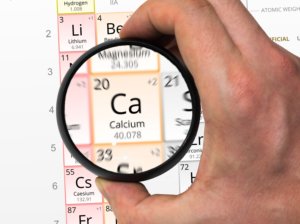 We all know that calcium is good for your bones, and many people actually supplement with calcium to prevent osteoporosis. But even without supplementation, we get plenty of
We all know that calcium is good for your bones, and many people actually supplement with calcium to prevent osteoporosis. But even without supplementation, we get plenty of 
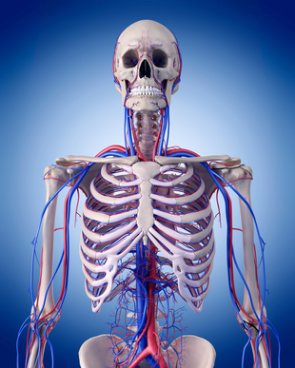 Many people take calcium supplements to prevent osteoporosis. However, research shows that high-dosage calcium supplements may harm your heart and cardiovascular system. It is important that you take
Many people take calcium supplements to prevent osteoporosis. However, research shows that high-dosage calcium supplements may harm your heart and cardiovascular system. It is important that you take  There is a clear link between
There is a clear link between 
 Everyone is affected by electromagnetic radiation from cell phones, device screens, the electricity supply and other electric systems. The brain’s neurons are particularly vulnerable, especially because electromagnetic radiation can increase the neuronal uptake of calcium ions, which makes the neurons overactive and may even cause them to perish. A study published in News Medical Life Sciences shows that too much calcium in the brain increases the risk of Alzheimer’s disease and digital dementia in young individuals. The increased electromagnetic radiation also generates loads of free radicals in the body that can cause oxidative stress and cellular damage because it outperforms the body’s different antioxidants. This was described in an article published in The Journal of Microscopy & Ultrastructure that also mentions how electromagnetic radiation can cause stress, headaches, fatigue, anxiety, and other symptoms.
Everyone is affected by electromagnetic radiation from cell phones, device screens, the electricity supply and other electric systems. The brain’s neurons are particularly vulnerable, especially because electromagnetic radiation can increase the neuronal uptake of calcium ions, which makes the neurons overactive and may even cause them to perish. A study published in News Medical Life Sciences shows that too much calcium in the brain increases the risk of Alzheimer’s disease and digital dementia in young individuals. The increased electromagnetic radiation also generates loads of free radicals in the body that can cause oxidative stress and cellular damage because it outperforms the body’s different antioxidants. This was described in an article published in The Journal of Microscopy & Ultrastructure that also mentions how electromagnetic radiation can cause stress, headaches, fatigue, anxiety, and other symptoms. A growing number of children are affected by asthma, which is associated with a reduced quality of life. Diet plays a significant role in the development of the disease, and it appears that excessive sugar intake from breakfast cereals, soft drinks, candy, and other sources increases the risk. A deficiency in
A growing number of children are affected by asthma, which is associated with a reduced quality of life. Diet plays a significant role in the development of the disease, and it appears that excessive sugar intake from breakfast cereals, soft drinks, candy, and other sources increases the risk. A deficiency in  Main meals are vital for stabilizing blood sugar levels, which makes it easier to concentrate in school. Fruit and vegetables are good sources of
Main meals are vital for stabilizing blood sugar levels, which makes it easier to concentrate in school. Fruit and vegetables are good sources of 
 Although chronic inflammation is not something that you feel as such, it sets the stage for a number of symptoms and a host of different diseases including fatigue, overweight, diabetes, cardiovascular disease, rheumatism, metabolic disorders, asthma, periodontal disease, bowel infections, depression, Alzheimer’s disease, sclerosis, and cancer. Not surprisingly, people are more and more hooked on the anti-inflammatory lifestyle, and we will take a closer look at studies showing how fish oil, vitamin D, selenium, magnesium, and zinc contribute to preventing and fighting inflammation, related diseases and premature death. Any nutritional supplements must be of a proper quality that the body can absorb, and they should contain therapeutic dosages.
Although chronic inflammation is not something that you feel as such, it sets the stage for a number of symptoms and a host of different diseases including fatigue, overweight, diabetes, cardiovascular disease, rheumatism, metabolic disorders, asthma, periodontal disease, bowel infections, depression, Alzheimer’s disease, sclerosis, and cancer. Not surprisingly, people are more and more hooked on the anti-inflammatory lifestyle, and we will take a closer look at studies showing how fish oil, vitamin D, selenium, magnesium, and zinc contribute to preventing and fighting inflammation, related diseases and premature death. Any nutritional supplements must be of a proper quality that the body can absorb, and they should contain therapeutic dosages.
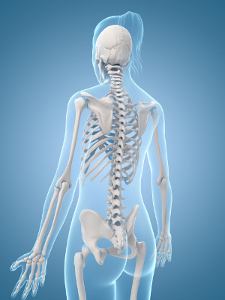 Many people avoid dairy products because they are lactose intolerant, are vegan, or for other reasons. Milk is a good source of nutrients, especially calcium, but you can easily get enough calcium from other food sources. What is more, it appears that vitamin D, vitamin K2, and the calcium/magnesium ratio is even more important than calcium alone for the structure and maintenance of strong bones. Another thing to remember is that sugar, soft drinks, stimulants, and certain types of medicine can disrupt the bone-building processes. Therefore, having strong bones is about a lot more than dairy products and calcium alone. Finally, don’t forget that daily weight-bearing exercise stimulates bone density.
Many people avoid dairy products because they are lactose intolerant, are vegan, or for other reasons. Milk is a good source of nutrients, especially calcium, but you can easily get enough calcium from other food sources. What is more, it appears that vitamin D, vitamin K2, and the calcium/magnesium ratio is even more important than calcium alone for the structure and maintenance of strong bones. Another thing to remember is that sugar, soft drinks, stimulants, and certain types of medicine can disrupt the bone-building processes. Therefore, having strong bones is about a lot more than dairy products and calcium alone. Finally, don’t forget that daily weight-bearing exercise stimulates bone density. More and more people are affected by depression, and many do not benefit from medical therapy, which may even cause serious side effects. It is already known that
More and more people are affected by depression, and many do not benefit from medical therapy, which may even cause serious side effects. It is already known that  Most people with type 2 diabetes have hidden deficiencies in nutrients such as
Most people with type 2 diabetes have hidden deficiencies in nutrients such as 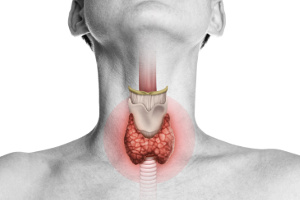
 Far more children are diagnosed with psychiatric disorders today. In the past seven years alone, twice as many cases of ADHD, autism, depression, and fear are diagnosed in Denmark. Communities are under pressure to find teachers, educators, psychologists and other relevant people with the right skills.
Far more children are diagnosed with psychiatric disorders today. In the past seven years alone, twice as many cases of ADHD, autism, depression, and fear are diagnosed in Denmark. Communities are under pressure to find teachers, educators, psychologists and other relevant people with the right skills. In ancient times when our ancestors hunted, they consumed every inch of the animal – from one end to another. Organ meat such as the liver, the heart, and the kidneys were delicacies that contained far more essential nutrients than other parts of the animal. In Western countries, we primarily consume muscle meat. In addition, animals often get unnatural fodder with suboptimal nutrient content. This results in deficiencies and an imbalance between amino acids and fatty acids. In the following article, you can read more about organ meats (also known as offal), bone marrow, and bone broth and their high content of essential amino acids,
In ancient times when our ancestors hunted, they consumed every inch of the animal – from one end to another. Organ meat such as the liver, the heart, and the kidneys were delicacies that contained far more essential nutrients than other parts of the animal. In Western countries, we primarily consume muscle meat. In addition, animals often get unnatural fodder with suboptimal nutrient content. This results in deficiencies and an imbalance between amino acids and fatty acids. In the following article, you can read more about organ meats (also known as offal), bone marrow, and bone broth and their high content of essential amino acids, 
 Many men suffer from erectile dysfunction, a problem that often foreshadows cardiovascular disorders. It appears that
Many men suffer from erectile dysfunction, a problem that often foreshadows cardiovascular disorders. It appears that  Fibromyalgia causes muscle pains, tiredness, sleep problems, and impaired quality of life. It is primarily women who are affected, and several studies have shown that diet plays a role in the development of the disease. The same goes for the the intake of
Fibromyalgia causes muscle pains, tiredness, sleep problems, and impaired quality of life. It is primarily women who are affected, and several studies have shown that diet plays a role in the development of the disease. The same goes for the the intake of  Most people have experienced a normal headache, while migraines are far more complex. Although the pain can be caused by a number of factors, essential nutrients such as B vitamins, vitamin D, magnesium, fish oil, and coenzyme Q10 may play a vital role according to a review article that is published in Current Pain and Headache Reports. The authors describe how certain nutrients affect underlying mechanisms that may prevent or mitigate different types of headaches.
Most people have experienced a normal headache, while migraines are far more complex. Although the pain can be caused by a number of factors, essential nutrients such as B vitamins, vitamin D, magnesium, fish oil, and coenzyme Q10 may play a vital role according to a review article that is published in Current Pain and Headache Reports. The authors describe how certain nutrients affect underlying mechanisms that may prevent or mitigate different types of headaches.
 Our risk of hearing loss increases as we grow older, and the nutrients in our diet appear to play a major role. According to a population study published in Frontiers in Nutrition,
Our risk of hearing loss increases as we grow older, and the nutrients in our diet appear to play a major role. According to a population study published in Frontiers in Nutrition,  Chronic heart failure is a clinical syndrome that involves, among other things, reduced heart pumping function. The condition is often life-threatening. A new study that is published in Journal of the American Heart Association looks closer at how supplementation with
Chronic heart failure is a clinical syndrome that involves, among other things, reduced heart pumping function. The condition is often life-threatening. A new study that is published in Journal of the American Heart Association looks closer at how supplementation with  The most harmful heavy metals are mercury, cadmium, lead, nickel, and cobber, but aluminum, fluoride, iron, and calcium can also be toxic. Poisoning with heavy metals and minerals blocks other minerals such as selenium, iodine, magnesium, and zinc, all of which support numerous essential enzyme processes. At the same time, if you lack these important minerals, heavy metals are able to cause unhindered damage and increase your risk of impaired immunity, impaired fertility, autoimmune diseases, thyroid diseases, brain damage, neurological diseases, depression, hypersensitivity, etc. Chronic heavy metal toxicity is an overlooked problem, but in this article, you can read more about the subject and find out how to deal with it.
The most harmful heavy metals are mercury, cadmium, lead, nickel, and cobber, but aluminum, fluoride, iron, and calcium can also be toxic. Poisoning with heavy metals and minerals blocks other minerals such as selenium, iodine, magnesium, and zinc, all of which support numerous essential enzyme processes. At the same time, if you lack these important minerals, heavy metals are able to cause unhindered damage and increase your risk of impaired immunity, impaired fertility, autoimmune diseases, thyroid diseases, brain damage, neurological diseases, depression, hypersensitivity, etc. Chronic heavy metal toxicity is an overlooked problem, but in this article, you can read more about the subject and find out how to deal with it. The interplay between
The interplay between 
 Diabetes and its precursor, metabolic syndrome, are characterized by insulin resistance and overweight. According to a Chinese study that is published in Frontiers in Nutrition, increased intake of
Diabetes and its precursor, metabolic syndrome, are characterized by insulin resistance and overweight. According to a Chinese study that is published in Frontiers in Nutrition, increased intake of  Insulin resistance is when the cells’ ability to take up glucose from the blood is impaired. It typically causes abnormal hunger and weight gain. Insulin resistance is also one of the symptoms of metabolic syndrome and type 2 diabetes. Previous studies have already demonstrated a link between vitamin D deficiency and the development of insulin resistance. The risk is even greater if you also lack magnesium, according to an American study. Here, the researchers look at interactions between
Insulin resistance is when the cells’ ability to take up glucose from the blood is impaired. It typically causes abnormal hunger and weight gain. Insulin resistance is also one of the symptoms of metabolic syndrome and type 2 diabetes. Previous studies have already demonstrated a link between vitamin D deficiency and the development of insulin resistance. The risk is even greater if you also lack magnesium, according to an American study. Here, the researchers look at interactions between 
 Minerals are involved in countless functions of vital importance to the immune defense. That is why lack of one or several minerals can increase your risk of infections or perhaps trigger unwanted inflammation that can damage healthy tissue. In a new review article that is published in Nutrients, a group of scientists look at magnesium, selenium, zinc, iron, and copper and their role in the immune system. They also look at the fact that vegans, older people, chronically ill, pregnant women, and elite athletes often have nutrient deficiencies that call for supplementation. The agricultural soil in Europe and many other parts of the world is selenium-depleted, which makes it challenging to get enough selenium from our diets. But it is also important not to overdose on minerals. In this article, you can read more about how to optimize your nutrient intake for your immune health.
Minerals are involved in countless functions of vital importance to the immune defense. That is why lack of one or several minerals can increase your risk of infections or perhaps trigger unwanted inflammation that can damage healthy tissue. In a new review article that is published in Nutrients, a group of scientists look at magnesium, selenium, zinc, iron, and copper and their role in the immune system. They also look at the fact that vegans, older people, chronically ill, pregnant women, and elite athletes often have nutrient deficiencies that call for supplementation. The agricultural soil in Europe and many other parts of the world is selenium-depleted, which makes it challenging to get enough selenium from our diets. But it is also important not to overdose on minerals. In this article, you can read more about how to optimize your nutrient intake for your immune health.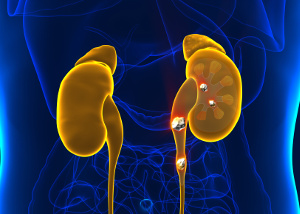 Kidney stones can be extremely painful, and there is a rather large risk that they reoccur at a later time. What you eat means a lot and your diet is therefore an important key to prevention. It is important to get plenty of
Kidney stones can be extremely painful, and there is a rather large risk that they reoccur at a later time. What you eat means a lot and your diet is therefore an important key to prevention. It is important to get plenty of 

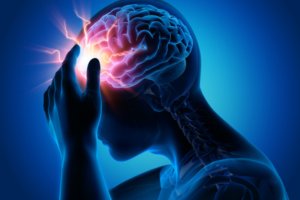 Migraine is the most common neurological disorder. According to a large review article, which was published in the scientific journal, Nutrients, large doses of
Migraine is the most common neurological disorder. According to a large review article, which was published in the scientific journal, Nutrients, large doses of  A good night’s sleep with accompanying dream activity is essential. It helps us recharge our batteries and process the things that have happened during the day.
A good night’s sleep with accompanying dream activity is essential. It helps us recharge our batteries and process the things that have happened during the day.  An estimated 350 million people worldwide suffer from depression, a disease with huge economic and human costs. Not everyone benefits from the traditional medical treatment, which can even cause various side effects, so there is every reason in the world to aim for more prevention and better therapies. A new study that is published in PLoS One shows that
An estimated 350 million people worldwide suffer from depression, a disease with huge economic and human costs. Not everyone benefits from the traditional medical treatment, which can even cause various side effects, so there is every reason in the world to aim for more prevention and better therapies. A new study that is published in PLoS One shows that  Depression is one of the largest health burdens worldwide. Although depression can be caused by a number of different things, a new Taiwanese study published in Nutrients suggests that having high blood levels of
Depression is one of the largest health burdens worldwide. Although depression can be caused by a number of different things, a new Taiwanese study published in Nutrients suggests that having high blood levels of 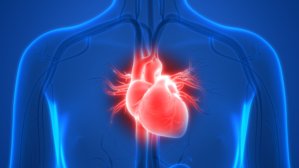 Heart failure is when the heart loses power and is no longer able to deliver blood to the different parts of the body. Typical symptoms are shortness of breath and physical exhaustion. There may also be symptoms like fluid retention, persistent coughing, chest tightness, increased sweating, or cold sensitivity. Chronic heart failure may be caused by different things, and it is a life-threatening condition. However, according to a study that is published in Journal of Clinical Investigation, magnesium supplementation can improve a type of heart failure called diastolic dysfunction. Previous studies have demonstrated that supplements of Q10 can also improve cardiac function in patients with heart failure.
Heart failure is when the heart loses power and is no longer able to deliver blood to the different parts of the body. Typical symptoms are shortness of breath and physical exhaustion. There may also be symptoms like fluid retention, persistent coughing, chest tightness, increased sweating, or cold sensitivity. Chronic heart failure may be caused by different things, and it is a life-threatening condition. However, according to a study that is published in Journal of Clinical Investigation, magnesium supplementation can improve a type of heart failure called diastolic dysfunction. Previous studies have demonstrated that supplements of Q10 can also improve cardiac function in patients with heart failure. Stress is associated with a host of physical and psychological health problems such as headache, fatigue, tension, insomnia, sore throat, constipation, flu-like symptoms, depression, and anxiety. Stress is not all in your mind. It is a physiological condition that affects the whole body and increases your need for specific nutrients. Earlier studies carried out with humans and animals have shown that supplements of
Stress is associated with a host of physical and psychological health problems such as headache, fatigue, tension, insomnia, sore throat, constipation, flu-like symptoms, depression, and anxiety. Stress is not all in your mind. It is a physiological condition that affects the whole body and increases your need for specific nutrients. Earlier studies carried out with humans and animals have shown that supplements of 
 Non-alcoholic fatty liver disease (NAFLD) and alcoholic fatty liver disease are associated with the development of other liver diseases, obesity, diabetes, cardiovascular diseases, and cancer. Diet and drinking habits play a major role.
Non-alcoholic fatty liver disease (NAFLD) and alcoholic fatty liver disease are associated with the development of other liver diseases, obesity, diabetes, cardiovascular diseases, and cancer. Diet and drinking habits play a major role. 
 Lack of
Lack of 
 Menopause is characterized by a host of completely natural physiological changes in the hormonal balance. However, many women experience hormonal imbalances that may lead to weight gain, redistribution of their fat mass, increased abdominal obesity and an elevated risk of osteoporosis, cardiovascular disease, type 2 diabetes, and cancer. The hormonal changes may also affect the nutritional status including nutrients like
Menopause is characterized by a host of completely natural physiological changes in the hormonal balance. However, many women experience hormonal imbalances that may lead to weight gain, redistribution of their fat mass, increased abdominal obesity and an elevated risk of osteoporosis, cardiovascular disease, type 2 diabetes, and cancer. The hormonal changes may also affect the nutritional status including nutrients like  Magnesium deficiencies are rather common and can easily occur if you get too little
Magnesium deficiencies are rather common and can easily occur if you get too little  Increased intake of
Increased intake of  Cardiovascular disease is the leading cause of death worldwide but a new Dutch study has revealed that older patients who have suffered a previous heart attack can lower their risk of early death caused by cardiovascular disease and other causes by getting enough
Cardiovascular disease is the leading cause of death worldwide but a new Dutch study has revealed that older patients who have suffered a previous heart attack can lower their risk of early death caused by cardiovascular disease and other causes by getting enough 

 Levels of
Levels of  We need plenty of
We need plenty of 

 Preeclampsia is a precursor of eclampsia, a condition characterized by spasms and seizures that can be life-threatening for the expecting mother and her unborn child. According to a new review article that is published in the science journal Cureus, injections of magnesium sulfate have been tested as part of the treatment for severe preeclampsia and related spasms. This therapy form has also been introduced in Denmark. It is important during pregnancy to get enough
Preeclampsia is a precursor of eclampsia, a condition characterized by spasms and seizures that can be life-threatening for the expecting mother and her unborn child. According to a new review article that is published in the science journal Cureus, injections of magnesium sulfate have been tested as part of the treatment for severe preeclampsia and related spasms. This therapy form has also been introduced in Denmark. It is important during pregnancy to get enough 
 The ageing process and most chronic diseases like diabetes, cardiovascular disease, and cancer involve chronic inflammation that has the potential to damage healthy tissue. If acute hyperinflammation occurs, for example in connection with virus infections like influenza and COVID-19, the condition may become potentially life-threatening. It is therefore vital that the body can control the different inflammatory processes. One of the things that is needed for this is
The ageing process and most chronic diseases like diabetes, cardiovascular disease, and cancer involve chronic inflammation that has the potential to damage healthy tissue. If acute hyperinflammation occurs, for example in connection with virus infections like influenza and COVID-19, the condition may become potentially life-threatening. It is therefore vital that the body can control the different inflammatory processes. One of the things that is needed for this is  Stable blood sugar levels are essential for our health, our energy levels, and our mood. However, millions of people across the globe suffer from insulin resistance and have impaired glucose uptake in their cells. Insulin resistance also occurs in people with type 2 diabetes. In a review article that is published in Advanced Biomedical Research, the authors look closer at magnesium’s role in connection with insulin resistance, blood sugar levels, and energy turnover. They conclude that
Stable blood sugar levels are essential for our health, our energy levels, and our mood. However, millions of people across the globe suffer from insulin resistance and have impaired glucose uptake in their cells. Insulin resistance also occurs in people with type 2 diabetes. In a review article that is published in Advanced Biomedical Research, the authors look closer at magnesium’s role in connection with insulin resistance, blood sugar levels, and energy turnover. They conclude that 
 There are around 750,000 people in Denmark who take several medical drugs per day, and the number of users is on the rise. What many people are unaware of is that different drugs can disrupt the body’s ability to absorb or utilize one or several nutrients, especially things like
There are around 750,000 people in Denmark who take several medical drugs per day, and the number of users is on the rise. What many people are unaware of is that different drugs can disrupt the body’s ability to absorb or utilize one or several nutrients, especially things like 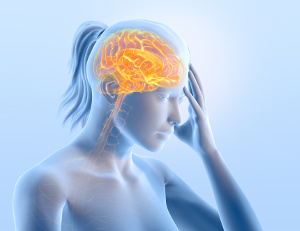
 The number of older people is on the rise, and so is the number of people who suffer from dementia and die as a result of this condition. If you increase your dietary intake of
The number of older people is on the rise, and so is the number of people who suffer from dementia and die as a result of this condition. If you increase your dietary intake of  Diabetes is spreading with epidemic proportions, and an alarmingly high number of people are affected by metabolic syndrome, an early stage of diabetes that causes insulin resistance, elevated cholesterol, hypertension, and enlarged waist circumference. Ever since the 1970s, diabetics have been advised to stick with a low-fat diet consisting of bread, potatoes, and other carbohydrate sources. However, a new Danish study reveals that it is best to cut back on your carbohydrate intake. The new message to diabetics supports research from other parts of the world. Diabetics and people with sensitive blood sugar should focus on eating a diet with fewer carbohydrates, more protein, and more healthy fats. They should also make sure to get enough chromium, vitamin D, and magnesium, all of which are nutrients that support the body’s blood sugar levels. Furthermore, vitamin B12 and Q10 are important for those, who take diabetes medication and cholesterol-lowering drugs (statins).
Diabetes is spreading with epidemic proportions, and an alarmingly high number of people are affected by metabolic syndrome, an early stage of diabetes that causes insulin resistance, elevated cholesterol, hypertension, and enlarged waist circumference. Ever since the 1970s, diabetics have been advised to stick with a low-fat diet consisting of bread, potatoes, and other carbohydrate sources. However, a new Danish study reveals that it is best to cut back on your carbohydrate intake. The new message to diabetics supports research from other parts of the world. Diabetics and people with sensitive blood sugar should focus on eating a diet with fewer carbohydrates, more protein, and more healthy fats. They should also make sure to get enough chromium, vitamin D, and magnesium, all of which are nutrients that support the body’s blood sugar levels. Furthermore, vitamin B12 and Q10 are important for those, who take diabetes medication and cholesterol-lowering drugs (statins). Calcium and vitamin D normally get all the attention when it comes to bone health. However, magnesium also plays a crucial, but often overlooked, role. This was demonstrated in a large population study that is published in Frontiers in Nutrition. The study links lower dietary magnesium to a greater risk of developing osteoporosis, especially for women aged 55 years and older. Osteoporosis normally takes many years to develop so it is vital to get plenty of magnesium from the diet or from supplements. Also, beware that excessive calcium intake, antacids, and diuretics block the body’s ability to absorb and utilize magnesium.
Calcium and vitamin D normally get all the attention when it comes to bone health. However, magnesium also plays a crucial, but often overlooked, role. This was demonstrated in a large population study that is published in Frontiers in Nutrition. The study links lower dietary magnesium to a greater risk of developing osteoporosis, especially for women aged 55 years and older. Osteoporosis normally takes many years to develop so it is vital to get plenty of magnesium from the diet or from supplements. Also, beware that excessive calcium intake, antacids, and diuretics block the body’s ability to absorb and utilize magnesium.
 PCOS – or polycystic ovary syndrome – is a problem that occurs in 5-10 percent of women of childbearing age. It is the most common cause of involuntary infertility. Related symptoms include tiredness, hirsutism (male hair growth), acne, and irregular menstrual periods. PCOS is often linked to instable blood sugar, increased risk of insulin resistance, overweight, cardiovascular disease, type 2 diabetes, and autoimmune diseases like Hashimoto’s thyroiditis that causes slow metabolism. Diet and exercise mean a lot in terms of prevention and treatment. The same is the case with different vitamins and minerals. We will be looking closer at B vitamins, vitamin D, vitamin E, and coenzyme Q10, plus magnesium, zinc, selenium, chromium, iodine, and fish oil. We will also be looking at how relevant supplements, according to science, can help control blood sugar levels and the hormone balance.
PCOS – or polycystic ovary syndrome – is a problem that occurs in 5-10 percent of women of childbearing age. It is the most common cause of involuntary infertility. Related symptoms include tiredness, hirsutism (male hair growth), acne, and irregular menstrual periods. PCOS is often linked to instable blood sugar, increased risk of insulin resistance, overweight, cardiovascular disease, type 2 diabetes, and autoimmune diseases like Hashimoto’s thyroiditis that causes slow metabolism. Diet and exercise mean a lot in terms of prevention and treatment. The same is the case with different vitamins and minerals. We will be looking closer at B vitamins, vitamin D, vitamin E, and coenzyme Q10, plus magnesium, zinc, selenium, chromium, iodine, and fish oil. We will also be looking at how relevant supplements, according to science, can help control blood sugar levels and the hormone balance.

 A healthy and regular digestion requires
A healthy and regular digestion requires 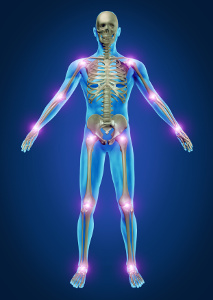 Rheumatism is the most widespread chronic disease in Denmark, and many people experience a worsening of the symptoms during the winter period. The majority of people take anti-inflammatory drugs for years, but this increases their risk of bleeding stomach ulcers and other side effects, not to mention premature death. The underlying cause is chronic inflammation and it is a problem that is not properly addressed. For decades, Nobel Prize-winners and other scientists have revealed what causes chronic inflammation and how the problem in many cases can be helped with various supplements that help cure the pain. In the following, we have summarized a lot of the research that has been conducted with vitamin D, fish oil, magnesium, selenium, zinc, and glucosamine, and we have looked at why the anti-inflammatory lifestyle has become such a health trend. It is essential to use supplements that contain the different ingredients in therapeutic doses and with a quality that allows the body to absorb and utilize the active compounds.
Rheumatism is the most widespread chronic disease in Denmark, and many people experience a worsening of the symptoms during the winter period. The majority of people take anti-inflammatory drugs for years, but this increases their risk of bleeding stomach ulcers and other side effects, not to mention premature death. The underlying cause is chronic inflammation and it is a problem that is not properly addressed. For decades, Nobel Prize-winners and other scientists have revealed what causes chronic inflammation and how the problem in many cases can be helped with various supplements that help cure the pain. In the following, we have summarized a lot of the research that has been conducted with vitamin D, fish oil, magnesium, selenium, zinc, and glucosamine, and we have looked at why the anti-inflammatory lifestyle has become such a health trend. It is essential to use supplements that contain the different ingredients in therapeutic doses and with a quality that allows the body to absorb and utilize the active compounds. Sleep apnea affects our breathing during sleep. The condition is also known to impair the patient’s health and quality of life. It even appears that
Sleep apnea affects our breathing during sleep. The condition is also known to impair the patient’s health and quality of life. It even appears that  Stress and magnesium deficiency are widespread problems in the general population. It’s a vicious cycle that increases the risk of fatigue, headaches, constipation, nervousness, insomnia, infections, depression, metabolic syndrome, and a number of physical and mental diseases. In a review article that is published in Nutrients, the authors look closer at magnesium’s key role in the body’s physiological stress response. They also address the fact that stress increases the need for magnesium. Moreover, nutrient-depleted soil, unhealthy diets, too much coffee, alcohol, and calcium plus certain types of medicine, intensive sport, menopause, and ageing increase the need for magnesium even more.
Stress and magnesium deficiency are widespread problems in the general population. It’s a vicious cycle that increases the risk of fatigue, headaches, constipation, nervousness, insomnia, infections, depression, metabolic syndrome, and a number of physical and mental diseases. In a review article that is published in Nutrients, the authors look closer at magnesium’s key role in the body’s physiological stress response. They also address the fact that stress increases the need for magnesium. Moreover, nutrient-depleted soil, unhealthy diets, too much coffee, alcohol, and calcium plus certain types of medicine, intensive sport, menopause, and ageing increase the need for magnesium even more. We consume far too much sugar from candy, soft beverages or in the form of concealed sugar in our food. This impairs the body’s uptake and utilization of
We consume far too much sugar from candy, soft beverages or in the form of concealed sugar in our food. This impairs the body’s uptake and utilization of  There is worldwide focus on finding better ways to prevent and treat COVID-19 because of the limited effect of vaccines. It is important to understand why the infections are harmless in most cases and why only a small number of people are affected by ARDS (acute respiratory distress syndrome), which is complicated and involves hyperinflammation. What represents the real problem here and what makes these infections life-threatening is a derailed and overactive immune defense. Multiple studies have already demonstrated that lack of vitamin D increases the risk of being infected with COVID-19 ending up in intensive care, and the studies also show that vitamin D supplements have a therapeutic potential. In a new review article that is published in Clinical and Molecular Allergy, researchers look closer at the synergy between vitamin D, magnesium, and zinc in relation to their ability to regulate the immune system and as potential therapeutic agents. It is also vital to have enough selenium, a nutrient that many people lack.
There is worldwide focus on finding better ways to prevent and treat COVID-19 because of the limited effect of vaccines. It is important to understand why the infections are harmless in most cases and why only a small number of people are affected by ARDS (acute respiratory distress syndrome), which is complicated and involves hyperinflammation. What represents the real problem here and what makes these infections life-threatening is a derailed and overactive immune defense. Multiple studies have already demonstrated that lack of vitamin D increases the risk of being infected with COVID-19 ending up in intensive care, and the studies also show that vitamin D supplements have a therapeutic potential. In a new review article that is published in Clinical and Molecular Allergy, researchers look closer at the synergy between vitamin D, magnesium, and zinc in relation to their ability to regulate the immune system and as potential therapeutic agents. It is also vital to have enough selenium, a nutrient that many people lack. Migraine headaches, a problem that affects far more women than men, is one of the diseases that costs most sick days, and there is no medical treatment that can cure the underlying cause. What we eat appears to play a major role, which is because foods such as matured cheese, chocolate, caffeinated beverages, red wine, and monosodium glutamate (MSG) can trigger migraines and headaches. Also, eating an unbalanced diet that is low in specific nutrients such as magnesium, B vitamins, and Q10 can disrupt certain metabolic processes, thereby setting off an attack. This was seen in a new study that is published in Frontiers in Nutrition.
Migraine headaches, a problem that affects far more women than men, is one of the diseases that costs most sick days, and there is no medical treatment that can cure the underlying cause. What we eat appears to play a major role, which is because foods such as matured cheese, chocolate, caffeinated beverages, red wine, and monosodium glutamate (MSG) can trigger migraines and headaches. Also, eating an unbalanced diet that is low in specific nutrients such as magnesium, B vitamins, and Q10 can disrupt certain metabolic processes, thereby setting off an attack. This was seen in a new study that is published in Frontiers in Nutrition. A woman’s estrogen balance is of vital importance to her fertility, mucosa, mood, libido, bones, cancer preventions, and many other things. There are also many myths about estrogen, which is merely a common term for the three types of estrogen – estradiol, estrone, and estriol – that have widely different functions. Like progesterone, stress hormones, and testosterone, estrogen belongs to the group of steroid hormones, where one hormone is built from another with help from enzymes. These enzymes depend on various nutrients such as iodine, vitamin D, magnesium, and selenium. If we lack these nutrients it may increase our risk of hormone imbalances, hot flushes, dry mucosa, bladder problems, and breast cancer.
A woman’s estrogen balance is of vital importance to her fertility, mucosa, mood, libido, bones, cancer preventions, and many other things. There are also many myths about estrogen, which is merely a common term for the three types of estrogen – estradiol, estrone, and estriol – that have widely different functions. Like progesterone, stress hormones, and testosterone, estrogen belongs to the group of steroid hormones, where one hormone is built from another with help from enzymes. These enzymes depend on various nutrients such as iodine, vitamin D, magnesium, and selenium. If we lack these nutrients it may increase our risk of hormone imbalances, hot flushes, dry mucosa, bladder problems, and breast cancer.  Uric acid is a natural waste product in the blood formed when the body breaks down dead cells. If uric acid levels become too high, it can lead to gout, a chronic condition associated with elevated blood pressure, kidney disease, cardiovascular disease, and other illnesses marked by chronic inflammation. According to a population study published in Frontiers in Endocrinology, there appears to be a link between
Uric acid is a natural waste product in the blood formed when the body breaks down dead cells. If uric acid levels become too high, it can lead to gout, a chronic condition associated with elevated blood pressure, kidney disease, cardiovascular disease, and other illnesses marked by chronic inflammation. According to a population study published in Frontiers in Endocrinology, there appears to be a link between 


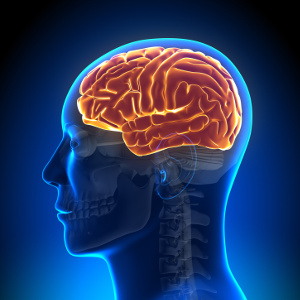 Alzheimer’s is a growing health burden worldwide, and diet appears to play a major role. A large meta-analysis published in Frontiers in Aging Neuroscience recently revealed that patients with Alzheimer’s disease have lower levels of
Alzheimer’s is a growing health burden worldwide, and diet appears to play a major role. A large meta-analysis published in Frontiers in Aging Neuroscience recently revealed that patients with Alzheimer’s disease have lower levels of  Depression is on the rise. The problem is often caused by inflammation in the brain. The British neuro-immunologist, Edvard Bullmore, has published the thought-provoking book called The Inflamed Mind, in which he describes the link between root canal treatment and depression, among other things. David Perlmutter, a neurologist, has written the book, Grain Brain, where he describes how gluten combined with carbohydrate overload also can cause inflammation in the brain. Depression, in other words, may occur when the blood-brain barrier is not as impermeable as assumed, and when the cytokines of the immune defense are able to cause undesirable brain inflammation. Numerous studies have shown that fish oil, vitamin D, magnesium, zinc, and selenium can improve a person’s mood by counteracting inflammation in the brain and other sites, and there is often a connection. It requires therapeutic doses, however, and it is vital that the supplements have good bioavailability, so the active substances reach the cells.
Depression is on the rise. The problem is often caused by inflammation in the brain. The British neuro-immunologist, Edvard Bullmore, has published the thought-provoking book called The Inflamed Mind, in which he describes the link between root canal treatment and depression, among other things. David Perlmutter, a neurologist, has written the book, Grain Brain, where he describes how gluten combined with carbohydrate overload also can cause inflammation in the brain. Depression, in other words, may occur when the blood-brain barrier is not as impermeable as assumed, and when the cytokines of the immune defense are able to cause undesirable brain inflammation. Numerous studies have shown that fish oil, vitamin D, magnesium, zinc, and selenium can improve a person’s mood by counteracting inflammation in the brain and other sites, and there is often a connection. It requires therapeutic doses, however, and it is vital that the supplements have good bioavailability, so the active substances reach the cells. A growing number of people suffer from overweight and type 2 diabetes, both of which are problems that come at a cost both to society and to the individual. The traditional dietary guidelines are not of much use, and many people find themselves in a hopeless battle because they also suffer from insulin resistance with impaired cellular glucose uptake. Countless epidemiological studies have demonstrated that the widespread lack of
A growing number of people suffer from overweight and type 2 diabetes, both of which are problems that come at a cost both to society and to the individual. The traditional dietary guidelines are not of much use, and many people find themselves in a hopeless battle because they also suffer from insulin resistance with impaired cellular glucose uptake. Countless epidemiological studies have demonstrated that the widespread lack of  Millions of people worldwide drink arsenic-polluted water regularly. Arsenic is a toxin that is known to cause different types of cancer, including skin cancer. According to a new study published in American Journal of Cancer Research, it looks as if the active form of vitamin D, calcitriol, can prevent the onset of arsenic-induced skin cancer in a special type of skin cells. Calcitriol also appears to be able to prevent other types of cancer caused by arsenic.
Millions of people worldwide drink arsenic-polluted water regularly. Arsenic is a toxin that is known to cause different types of cancer, including skin cancer. According to a new study published in American Journal of Cancer Research, it looks as if the active form of vitamin D, calcitriol, can prevent the onset of arsenic-induced skin cancer in a special type of skin cells. Calcitriol also appears to be able to prevent other types of cancer caused by arsenic. Benign paroxysmal positional vertigo (BPPV) impairs many people’s quality of life and ability to work. The dizzy spells typically occur when they shift position. According to a study from Korea which is published in Neurology, supplementing with
Benign paroxysmal positional vertigo (BPPV) impairs many people’s quality of life and ability to work. The dizzy spells typically occur when they shift position. According to a study from Korea which is published in Neurology, supplementing with  PMS (premenstrual syndrome) is quite common among women of childbearing age and can easily make their lives miserable for years, causing both physical and mental discomfort several days a month. A possible cause can be lack of
PMS (premenstrual syndrome) is quite common among women of childbearing age and can easily make their lives miserable for years, causing both physical and mental discomfort several days a month. A possible cause can be lack of  Tuberculosis (or TB) is one of most widespread diseases in the world. It claims millions of human lives every year, especially in underdeveloped countries. A team of scientists from Queen Mary University in London has discovered that
Tuberculosis (or TB) is one of most widespread diseases in the world. It claims millions of human lives every year, especially in underdeveloped countries. A team of scientists from Queen Mary University in London has discovered that  Epidemiological studies have led to different results when it comes to
Epidemiological studies have led to different results when it comes to 
 According to WHO, chronic inflammation is the leading cause of death worldwide. Although it is not something that can be felt as such, chronic inflammation sets the stage for a host of different diseases. In a new review article that is published in StatPearls, the authors look closer at why chronic inflammation is so dangerous and how a healthier lifestyle with vitamin D, selenium, magnesium, zinc, and fish oil can help fight the inflammation and prevent the many different diseases and early death that follow in its wake.
According to WHO, chronic inflammation is the leading cause of death worldwide. Although it is not something that can be felt as such, chronic inflammation sets the stage for a host of different diseases. In a new review article that is published in StatPearls, the authors look closer at why chronic inflammation is so dangerous and how a healthier lifestyle with vitamin D, selenium, magnesium, zinc, and fish oil can help fight the inflammation and prevent the many different diseases and early death that follow in its wake.
 "After about one week of taking the Q10 supplement I could feel a huge difference," says 23-year old Alan Piccini, who has been suffering from extreme fatigue and muscle aches ever since he was a child.
"After about one week of taking the Q10 supplement I could feel a huge difference," says 23-year old Alan Piccini, who has been suffering from extreme fatigue and muscle aches ever since he was a child. “Taking capsules with co-enzyme Q10 has freed me of the severe side effects of my cholesterol lowering medicine,” Mrs Franken explains.
“Taking capsules with co-enzyme Q10 has freed me of the severe side effects of my cholesterol lowering medicine,” Mrs Franken explains.